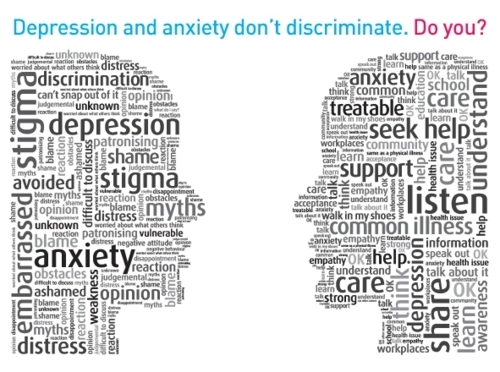Workplace Depression Testing and Assessment by Expert Psychologists In London and Throughout the UK
As experts in the assessment of depression we carry out assessments of depression at work. We advise on the cause of the depression and develop strategies to reduce the risk of depression at work. We advise on reasonable adjustments, and determine whether an employees depression is a disability under the Equality Act 2010. Our expert psychologists also carry out assessments of depression for employees in education.
Workplace Depression
Depression affects one in 10 people at any one time. Sometimes people who are suffering from depression find it difficult to express their feelings. This can be wrongly interpreted by others as laziness or unprofessionalism.
Causes of Workplace Depression
There are several factors that can cause depression at work including having unrealistic targets; excessive working hours; high job strain; risk of redundancy; high psychological demands; dealing with conflict at work; low social support at work; and an in-balance between high effort and little reward.
Developing Strategies to Reduce Depression at Work
Well-being strategies are fundamental to reducing depression at work. These strategies include ensuring high levels of employee engagement, which in turn results in improved productivity, profitability and better staff commitment.
Strategies to address workplace depression work best when they address the causes of work-related depression; provide support for staff who are suffering from depression; and promote well-being for all employees.
Effective Strategies to Deal with Workplace Depression
Effective strategies to combat work depression will:
- Adopt a highly flexible approach, responding to everyone’s needs.
- Develop an environment where people feel safe and confident to talk about how depression is impacts on their performance.
- Confidentiality will be at the heart of the process.
- Avoid stereotypes and assumptions.
- Recognise that individual’s with depression will respond differently.
- Ensure the working conditions are good (this includes minimal noise, adequate heating and ventilation, good lighting; and office plants).
- Managers need to be sensitive and supportive.
- Provide the opportunity to develop new skills sets.
- Understand what motivates individual employees and build activities to keep them motivated.
- Increase autonomy.
- Put in place flexible working.
- Reduce the stigma surrounding depression and other mental health conditions.
- Increase awareness about depression in the workplace and its impact on productivity.
- Provide managers with the skills to recognise the symptoms of depression early.
Our expert psychologists bring extensive expertise of working with organisations to improve well-being and reduce depression at work

Reasonable Workplace Adjustments
It is essential to support individuals with depression by providing the necessary reasonable adjustments to ensure that their condition does not deteriorate. Employers will be able to access funding from Access to Work in certain instances to keep the employee in work if their depression is severe enough to be a disability.
Seek Help for Workplace Depression
Unfortunately, approximately 70% of individuals with depression do not seek help or support. It is, therefore, essential to obtain support early from your GP or obtain private counselling or counting on the NHS. Advanced Assessments Ltd, provides therapy and support.
Ask About Our Online Remote Video Enabled Version of This Psychological Assessment. Find Out More Here About the Process Here

Depression, Work and Disability Discrimination
Workplace Depression and Disability Discrimination
Disabled employees have protection under the Equality Act 2010. Consequently, employers should not treat an employee less favourably because of their disability, or for a reason related to their disability. Furthermore, a good employer will make reasonable adjustments to the workplace when the disability places the disabled employee under a substantial disadvantage. The Equality Act 2010 provides a framework for employers to make such reasonable adjustments.
For the Equality Act 2010 to be triggered, the employer must have actual or implied knowledge of the employee’s disability.
When an employee has indicated that they suffer from depression, or an employer might have reasonable grounds to think that the employee suffers from depression there may be grounds to assume the employee has a disability. This might be obvious because the employee is forgetful; finds it hard to follow instructions; has difficulty concentrating; has difficulty remembering or takes considerably longer than their colleagues to carry out the same tasks.
A key question to ask when deciding whether the depression amounts to a disability is to consider whether it has an adverse effect on the individual’s normal “day-to-day activities.”
A further criterion to consider is whether the depression has a substantial adverse effect on the individual’s ability to carry out their normal day-to-day activities. Depression is a widespread condition, and individuals with very mild depressive illnesses might have depressive symptoms which are not substantial enough to amount to a disability. Our expert psychologist advise both respondents and defendants on disability.
To decide whether the depression has a substantial adverse effect on the employee, one must consider whether the employee’s condition would have substantial adverse effects without medication or therapy.
For the individual’s depression to amount to a disability, it must be long term. That means their condition must have lasted or is likely to last for 12 months or more. Even if the individual’s depression improves for a short period and then re-occurs, the disability would be regarded as continuing by an Employment Tribunal or County Court.
Although many cases of disability discrimination linked to depression occur in the employment context. Individuals also have protection from disability because of their depression in relation to the provision of education, goods and services, housing and health.
Depression and Disability Discrimination in Education
Educational organisations such as universities schools and colleges must make reasonable adjustments for individuals with depression, and other disabilities. In addition to this, further and higher education institutions must avoid disability-related harassment linked to depression or other disabilities. These requirements are also placed on qualification awarding bodies.
Depression and Disability Discrimination in Renting and Buying Property
Stable accommodation is essential to remain in employment. When a person is discriminated against because of how their disability depression impacts on retaining rented properties and buying property this can amount to discrimination under the Equality Act 2010. Particularly, where the housing association is a public body, there is a duty on that association to make the necessary reasonable adjustments. These reasonable adjustments should be implemented before possession proceedings are instituted. Our expert psychologist have assisted both claimants and defendants in housing possession claims.
It can be quite tricky for untrained individuals to determine whether an employee’s depression amounts to a disability. The most prudent course of action would be to obtain an expert psychologist assessment. Advanced Assessments Ltd, specialises in providing such evaluations.
Find Out More About Work Depression
- When Is Depression a Disability?
- Mental health and the Disability Discrimination Act (DDA)
- When a Mental Health Condition Becomes a Disability
- Disability Discrimination and Depression: Employment Tribunal
- Employee Who Suffered from Depression/Anxiety and Was Dismissed
- HR Guide to Depression in The Workplace
- Symptoms of Depression and Their Effects on Employment
- Depression and Employment: Looking for Work
- Dealing with Depression in the Workplace
- Improving Employment Outcomes for People with Depression UK Report
- Depression in the Workplace: Can We Do Better?
- Stress at Work - Mental Health Conditions, Work and The Workplace
- Workplace Depression
- Depression Lost Me My Job': How Mental Health Costs Up to 300,000
- Workplace Mental Health – Depression
- Five Strategies for Dealing with Workplace Depression
- Causes of Workplace Depression, and Steps to Prevent
- Is Your Employee Suffering? Telltale Signs of Depression in The Workplace
Find A Psychologist Near Me

Advanced Assessments - Psychologists for Legal, Education and Employment
Open Now - 24 hour Service - Open Weekends
We work throughout the UK
UK: +44 208 200 0078 Emergencies: +44 7071 200 344
180 Piccadilly, London, W1J 9HF
Also at: Westhill House, Highgate Consulting Rooms, 9 Swain's Lane, London N6 6QS
Please do not attend our office if you do not have an appointment
Twitter: @ExpertWitness_
Facebook
We are a part of the Strategic Enterprise Group
